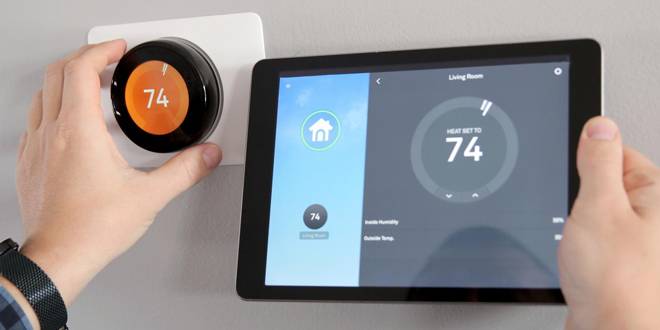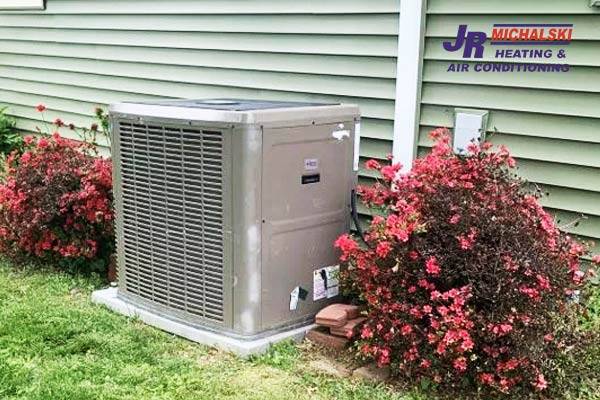
For homeowners and business owners in Langhorne, PA, navigating the complexities of HVAC control systems is key to achieving optimal comfort and energy efficiency. This comprehensive guide will explore the essentials of HVAC control systems, ensuring you have the knowledge to make informed decisions for your property.
Understanding HVAC Control Systems
HVAC control systems are the brain behind your heating, ventilation, and air conditioning units, allowing for precise regulation of indoor climate. These systems range from simple thermostats to complex, building-wide automation systems designed to optimize comfort and energy use.
Types of HVAC Control Systems
Manual Controls: Basic thermostats that require manual adjustment.
Programmable Thermostats: Allow for setting schedules to automatically adjust temperatures.
Smart Thermostats: Connect to the internet for remote control and monitoring, learning your habits over time for automatic adjustments.
Zoning Systems: Enable different areas (zones) to be heated or cooled independently.
Building Automation Systems (BAS): For commercial properties, these integrate various systems (HVAC, lighting, security) for centralized control and efficiency.
Key Features to Consider
Remote Access: Smart thermostats and BAS often offer remote access via apps, allowing you to adjust settings from anywhere.
Energy Reporting: Many systems provide detailed energy usage reports, helping identify opportunities for additional savings.
Compatibility: Ensure the control system is compatible with your existing HVAC equipment.
Ease of Use: User-friendly interfaces make it easier to program and adjust settings.
Benefits of Advanced HVAC Control Systems
Energy Savings: Smart scheduling and zoning reduce energy consumption by heating or cooling only when and where needed.
Improved Comfort: Precise temperature control and the ability to adjust settings remotely or automatically improve overall comfort.
Enhanced Lifespan of HVAC Equipment: Efficient operation reduces wear and tear on your HVAC system, potentially extending its lifespan.
Installation and Maintenance
Professional Installation: To ensure optimal performance and compatibility, professional installation by a certified HVAC technician is recommended.
Regular Updates: Keep software or firmware updated for the latest features and security.
Routine Check-ups: Regular maintenance of your HVAC system, along with its control system, ensures everything operates efficiently.
Choosing the Right System for Your Needs
Consider your property’s size, your lifestyle, and your energy efficiency goals when selecting an HVAC control system. For personalized advice and installation, consulting with HVAC professionals who understand the specific needs of Langhorne, PA, residents and businesses is crucial.
HVAC Control System Troubleshooting Tips
Experiencing issues with your HVAC control system can be frustrating, especially when it affects your comfort. Before calling in the professionals, there are several troubleshooting steps you can take to potentially resolve common problems. Here’s a guide to help you diagnose and possibly fix issues with your HVAC control system:
Thermostat Issues
Check the Power Source: Ensure the thermostat is receiving power, either from batteries or the home’s electrical system. Replace batteries if necessary or check the circuit breaker if it’s hardwired.
Verify Settings: Double-check that the thermostat is set to “heat” or “cool” according to your needs and that the temperature settings are correct.
Inspect for Dirt and Debris: Sometimes, dirt or dust accumulation inside the thermostat can affect its functionality. Carefully open the thermostat and gently clean it with a soft brush or compressed air.
No Response from HVAC System

Check the Circuit Breakers: A tripped circuit breaker or blown fuse could cut power to your HVAC system. Inspect your home’s electrical panel and reset any tripped breakers or replace blown fuses.
Inspect the Air Filters: Clogged air filters can restrict airflow and cause the system to shut down. Check and replace the air filters if they are dirty.
Examine the Vents and Registers: Ensure all vents and registers are open and unobstructed to allow proper air circulation.
Inconsistent Temperatures or Poor Performance
Check for Zoning Issues: If your system is zoned, ensure that the zone controls are functioning correctly and that dampers are open.
Inspect Ductwork for Leaks: Leaky ducts can cause loss of air and lead to inconsistent temperatures. Visually inspect accessible ductwork for any signs of disconnection or damage.
Evaluate Room Usage: Appliances, electronics, and even large gatherings of people can affect room temperatures. Consider these factors if certain areas are harder to heat or cool.
System Frequently Turns On and Off (Short Cycling)
Thermostat Placement: Ensure the thermostat is not placed near heat sources, such as sunlight, lamps, or appliances, which can cause false readings and short cycling.
Check for Oversized Equipment: An HVAC system that is too large for your space can frequently turn on and off, failing to reach efficient operation cycles. This issue might require professional assessment.
Smart Thermostat Connectivity Issues
Wi-Fi Connection: Verify that your Wi-Fi network is working and that the thermostat is connected to the correct network. Restart your router if necessary.
Software Updates: Ensure your smart thermostat has the latest firmware or software updates installed. Check the manufacturer’s app or website for update instructions.
When to Call a Professional
If after these troubleshooting steps the issue persists, it may be time to call in a professional HVAC technician. Complex problems, such as faulty wiring, malfunctioning control boards, or refrigerant leaks, require the expertise of a trained professional to safely and effectively resolve.
Remember Safety First
Always prioritize safety when attempting to troubleshoot your HVAC control system. Turn off power to the system before inspecting or cleaning components, and never attempt repairs that are beyond your knowledge or comfort level.
By following these troubleshooting tips, you may be able to resolve simple issues with your HVAC control system, restoring comfort to your home or business. For persistent or complex problems, don’t hesitate to contact JR Michalski Heating & Air Conditioning for expert assistance in Langhorne, PA, and surrounding areas.
FAQ: HVAC Control Systems
What is an HVAC control system?
An HVAC control system is a technology used to regulate the operation of heating, ventilation, and air conditioning units within a building. It allows for precise control over indoor temperatures, humidity levels, and air quality, optimizing comfort and energy efficiency.
How do programmable thermostats differ from smart thermostats?
- Programmable Thermostats: Allow users to set specific temperatures for different times of the day and week, automating HVAC operations based on a fixed schedule.
- Smart Thermostats: Offer the same scheduling capabilities but also learn from your habits, can be controlled remotely via internet-connected devices, provide energy usage reports, and integrate with other smart home devices for enhanced functionality.
Can I install an HVAC control system myself?
While some simpler thermostat models can be installed by individuals with a good understanding of their HVAC system and electrical systems, it is generally recommended to have professional installation, especially for more complex systems like zoning controls or building automation systems, to ensure optimal performance and avoid damaging your HVAC equipment.
Will an HVAC control system work with any HVAC unit?
Most modern HVAC control systems are designed to be compatible with a wide range of HVAC units, but compatibility can vary, especially with older models. It’s important to check the specifications of the control system or consult with a professional to ensure compatibility with your existing HVAC equipment.
How can HVAC control systems save money on energy bills?
HVAC control systems improve energy efficiency by ensuring that heating and cooling are provided only when needed, reducing unnecessary energy consumption. Programmable schedules, smart adjustments based on occupancy or weather, and zoning can all contribute to significant energy savings.
What is zoning, and how does it work?
Zoning divides a home or building into different areas or “zones,” each controlled independently by its own thermostat. This allows for customized temperature settings in different areas, improving comfort and reducing energy waste by heating or cooling only the zones in use.
Are HVAC control systems difficult to use?
Modern HVAC control systems are designed with user-friendliness in mind. Many smart thermostats feature intuitive interfaces, easy-to-navigate apps, and voice control capabilities. However, the complexity can increase with systems that manage multiple zones or integrate with building automation, potentially requiring a learning curve for new users.
How often do HVAC control systems need to be updated or replaced?
The lifespan of an HVAC control system varies by type and usage but generally, smart thermostats and other electronic controls may receive software updates periodically to improve functionality and security. Hardware replacement is less frequent and depends on the system’s durability and technological advancements. Regular maintenance checks can help ensure your system remains effective and up-to-date.
Can HVAC control systems improve indoor air quality?
Yes, many HVAC control systems can be integrated with air quality sensors and purifiers to monitor and improve indoor air quality. They can adjust ventilation rates or activate air cleaning systems in response to detected levels of pollutants or allergens, contributing to a healthier indoor environment.
How do I choose the right HVAC control system for my home or business?
Selecting the right system depends on several factors, including the size and layout of your property, your specific heating and cooling needs, your budget, and your interest in home automation. Consulting with HVAC professionals, like those at JR Michalski Heating & Air Conditioning, can provide personalized recommendations based on an assessment of your property and preferences.
Ready to Take Control? 🌡️✨
Elevate your indoor comfort and energy efficiency with JR Michalski Heating & Air Conditioning. Our team specializes in the latest HVAC control systems, offering tailored solutions that fit your unique needs. Whether you’re upgrading your home or optimizing your business, we’re here to ensure seamless integration and maximum comfort. Reach out today and let us help you take control of your indoor climate.


